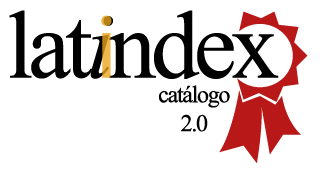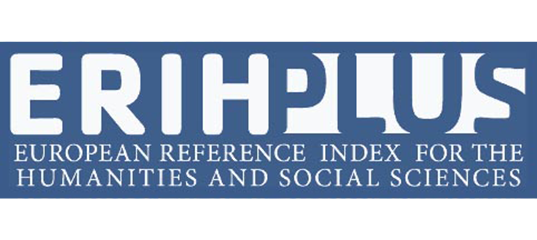Impact of Oil Price Volatility on Fiscal Revenues and Public Expenditure in Ecuador (2018–2024)
DOI:
https://doi.org/10.46480/esj.9.2.261Keywords:
Impact of oil price volatility, Fiscal petroleum revenues, Public expenditure, Correlation and regression, Budget stabilizationAbstract
Context: The sharp volatility of oil prices between 2018 and 2024 posed a major challenge to Ecuador’s fiscal stability, generating variability in both revenue collection and public spending programming. This article empirically examines the impact of international oil quotations (WTI) and the local crude (Napo-Oriente) on fiscal oil revenues, as well as their influence on the distribution and
execution of public expenditure. Methodology: Monthly time series were employed to identify seasonal patterns and extreme shocks, complemented by annual price averages correlated with revenues reported by the Ministry of Finance. Pearson correlation coefficients and simple linear regressions were applied to assess the strength of association between prices and revenues. Results: The local average price Napo_avg explained oil revenue variations more accurately (r = 0.905, R2 = 0.82) than WTI (r = 0.883, R2 = 0.78). The share of oil revenues in the General State Budget ranged from 0.21% to 0.54%, showing a moderate correlation with Napo_avg (r ≈ 0.73). Sectoral analysis revealed positive associations with social welfare spending (r = 0.528) and health (r = 0.337),
while public investment (r = −0.291) and housing development (r = −0.700) displayed countercyclical behavior. Conclusions: The findings highlight Ecuador’s fiscal dependence on oil cycles and underscore the need to establish stabilization funds and fiscal rules to mitigate the effects of crude price volatility on long-term fiscal sustainability.
Downloads
References
Al Khathlan, K., & Javid, M. (2020). Volatility and Long-Run Oil Prices: Evidence from Price Settings. Resources Policy, 67, 101-113. https://doi.org/10.1016/j.resourpol.2020.101113
Banco Central del Ecuador. (2025). Precio del petróleo crudo ecuatoriano (Napo/Oriente): series mensuales [Consultado: junio 2025]. https://contenido.bce.fin.ec/documentos/informacioneconomica/indicadores/ real/PrecioPetroleoCrudoEcuatoriano.html
Torres, P., & Mejía, K. (2024). Estimating the Impact of Oil Price Volatility on the Ecuadorian Economy: A MIDAS Approach. International Journal of
International Monetary Fund. (2014). Government Energy Economics and Policy, 14(3), 202-215.
Bird, R. M., & Zolt, E. M. (2005). Redistribution via Taxation: The Limited Role of the Personal Income Tax in Developing Countries. Journal of Asian Economics, 16 (6), 928-946. https://doi.org/10.1016/j.asieco.2005.06.009 DOI: https://doi.org/10.1016/j.asieco.2005.09.001
Brown, S. P. A., & Yücel, M. K. (2022). What Drives Crude Oil Prices? The Energy Journal, 43 (3), 1-24. https://doi.org/10.5547/01956574.43.3.sbro
Díaz, J., & López, M. (2020). Determinantes de los ingresos fiscales petroleros en Ecuador. Revista de Economía del Ecuador, 12 (2), 45-67.
Gómez, R., & Pérez, L. (2019). Oil Price Fluctuations and Public Expenditure Allocation. Journal of Fiscal Studies, 24 (3), 305-328. https://doi.org/10.1111/jfsa.20219
International Monetary Fund. (2014). Government
Finance Statistics Manual 2014.
Kumar, A., & Thomson, E. (2021). Macroeconomic Stabilization Funds and Oil Price Uncertainty. IMF Economic Review, 69 (2), 347-370. https://doi.org/10.1057/s41308-021-00130-3
Martínez, C. (2022). Comparative Analysis of Oil Price Indexing Mechanisms. Energy Research Letters, 3 (2), 201-218. https://doi.org/10.46557/001c.27578
Mensah, S., & Fiador, V. (2018). Oil Price Volatility and Government Revenue Volatility in Ghana. Energy Economics, 75, 110-123. https://doi.org/10.1016/j.eneco.2018.08.014 DOI: https://doi.org/10.1016/j.eneco.2018.08.014
Ministerio de Finanzas del Ecuador. (2025). Liquidaciones presupuestarias anuales (firmadas) 2018–2024 [Consultado: junio 2025]. https://www.finanzas.gob.ec/liquidacion-presupuestaria/
Roberts, C., Hevia, F., & Urrutia, C. (2021). Optimal Policies for Managing Oil Revenue Stabilization Funds. Journal of Public Economics, 193, 104-120. https://doi.org/10.1016/j.jpubeco.2020.104120
Rodríguez, L., & Sánchez, A. (2019). Impacto del precio del petróleo en la sostenibilidad fiscal de Ecuador. Economía y Política, 15 (1), 89-110.
Sahoo, S., & Dash, R. (2020). Oil Price Shocks and Fiscal Policy in India. Energy Policy, 137, 111-125. https://doi.org/10.1016/j.enpol.2019.111125 DOI: https://doi.org/10.1016/j.enpol.2019.111125
Silva, P., & Ortega, M. (2023). Price Volatility and Budgetary Rules in Ecuador. Public Budgeting & Finance, 43 (1), 89-112. https://doi.org/10.
/pbaf.12345
Torres, P., & Mejía, K. (2024). Estimating the Impact of Oil Price Volatility on the Ecuadorian Economy: A MIDAS Approach. International Journal of Energy Economics and Policy, 14 (3), 202-215. https://doi.org/10.32479/ijeep.16285 DOI: https://doi.org/10.32479/ijeep.16285
Umbach, F. (2021). Fiscal Rules and Oil Price Shocks in Latin America. Latin American Journal of Economics, 58(4), 651-75. https://doi.org/10.1353/lae.2021.0045
U.S. Energy Information Administration. (2025). WTI Spot Price FOB (Dollars per Barrel) [Consulta- do: junio 2025]. https://www.eia.gov/dnav/pet/hist/LeafHandler.ashx?n=PET%5C&s= RWTC%5C&f=M
World Bank. (2017). Fiscal Management and Natural Resources: A Handbook.
Downloads
Published
Issue
Section
License
Copyright (c) 2025 Sandro Moreira, Shirley Pizarro-Anchundia

This work is licensed under a Creative Commons Attribution-NonCommercial-ShareAlike 4.0 International License.
Authors retain the copyright of their articles and are therefore free to share, copy, distribute, perform, and publicly communicate their work on their personal websites or in institutional repositories after its publication in this journal, provided that full bibliographic information is given to acknowledge its original publication.































